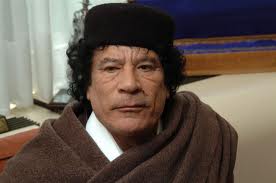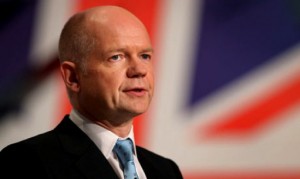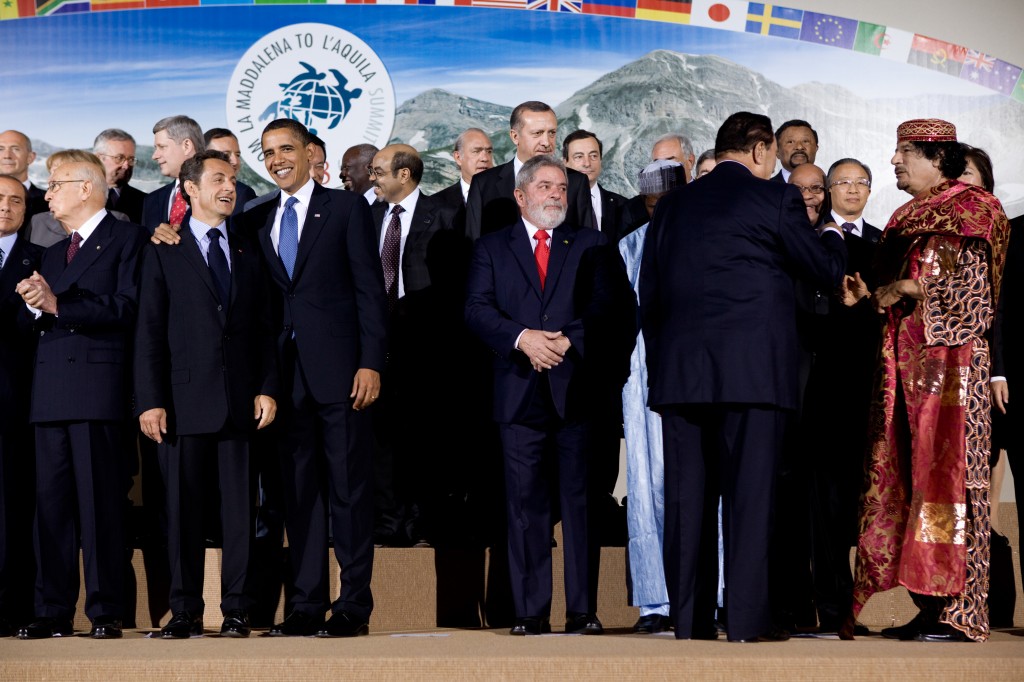23 August 2011
Libya: Britain breaking international law on regime change?
IS THE British Government guilty of breaking international law in Libya? Has it been using the UN-authorised humanitarian intervention resolution to protect civilians in Libya’s civil war as a very thin smokescreen to use violence and military might to bring about regime change in another state – an oil-rich state?
Now that the Libyan rebels seem on the verge of ousting Gaddafi and ending his 42-year rule by taking Tripoli, the British media is openly boasting about the secret role of MI6 (Secret Intelligence Service) in the war as well as the part so openly played by the RAF that Al Jazeera dubbed it ‘the rebels’ air force’.
United Nations Security Council Resolution 1973 approved outside intervention on humanitarian grounds but the United Nations Charter, Article 2(4) says:
All members shall refrain in their international relations from the threat or use of force against the territorial integrity or political independence of any state, or in any other manner inconsistent with the Purposes of the United Nations.
Secret agents and armed forces commanded by Britain’s David Cameron and Nick Clegg (and nominally headed by the British royal family) have clearly gone beyond this in their full-blooded pursuit of regime change as part of the NATO nations' offensive. Tuesday’s Daily Telegraph newspaper brags:
For weeks, military and intelligence officers have been helping the rebels plan their co-ordinated attack on the capital, and Whitehall sources have disclosed that the RAF stepped up raids on Tripoli on Saturday morning in a prearranged plan to pave the way for the rebel advance.
MI6 officers based in the rebel stronghold of Benghazi had honed battle plans drawn up by Libya’s Transitional National Council (TNC) which were agreed 10 weeks ago.
The constantly-updated tactical advice provided by British experts to the rebel leaders centred on the need to spark a fresh uprising within Tripoli that could be used as the cue for fighters to advance on the city.
Note the statement "MI6 officers based in the rebel stronghold of Benghazi".
The Fleet Street daily reveals:
The Daily Telegraph has learnt that although the uprising in Tripoli began on Saturday night, the first phase of the battle for the capital had begun hours earlier, when RAF Tornado GR4 aircraft attacked a key communications facility in south-west Tripoli as part of the agreed battle plan.
They had also been given night-vision goggles, which proved crucial in picking out snipers who had been sent by Gaddafi to impede their progress towards the capital.
On Saturday morning, five precision-guided Paveway IV bombs were dropped on the Baroni Centre, a secret intelligence base headed by Gaddafi’s brother-in-law, Abdullah Senussi.
The aircraft then struck at least one main battle tank belonging to Gaddafi’s troops, and in the afternoon another RAF patrol destroyed an artillery piece on the western edge of Tripoli and a nearby command and control facility.
Gaddafi’s compound, the Telegraph adds, “was pounded throughout the night” as the rebels attacked Tripoli from outside the capital city and sparked an uprising from within.
British Foreign Minister William Hague was keen to claim some glory from the safety of the Home Counties:
William Hague, the Foreign Secretary, confirmed yesterday that Britain had equipped the [anti-government] fighters with a range of “non-lethal” kit including advanced telecommunications equipment and 1,000 sets of body armour.
Commentator Peter Dyer says on consortiumnews.com there hasn’t been much discussion of the legality of the action Britain’s Cameron and Clegg – and France’s President Sarkozy and US President Obama – are advocating.
UNSC Resolution 1973 does not contemplate regime change. In fact, regime change, imposed from outside, is against international law.
And Peter Dyer says NATO nations could be seen as in violation of not just the UN Charter but also the Nuremberg Charter, Article 6(a) which forbids “participation in a common plan or conspiracy” for "planning, preparation, initiation or waging of a war of aggression".
“An invasion of any country not authorized by the Security Council for the purpose of regime change would almost certainly constitute an act of aggression,” Peter Dyer says. The Western allies, however, appear to have avoided a full-scale, open invasion . . . but what about the covert operations of MI6 and military units such as the SAS, US Navy SEALs or French special forces?
On Monday, British Prime Minister David Cameron, rushed back from a family holiday in Cornwall to Downing Street to chair a meeting of the National Security Council.
Speaking outside Number 10, Cameron paid tribute to the “incredible bravery, professionalism and dedication” of the RAF pilots who blitzed Tripoli from the skies:
This has not been our revolution but we can be proud that we have played our part.
What part the West’s governments and oil interests really played is still to be fully told. Although Cameron & Co may not be claiming this as their revolution, will they and their allies be claiming the spoils?
Follow us on Facebook
An Phoblacht on Twitter
Uncomfortable Conversations

An initiative for dialogue
for reconciliation
— — — — — — —
Contributions from key figures in the churches, academia and wider civic society as well as senior republican figures







